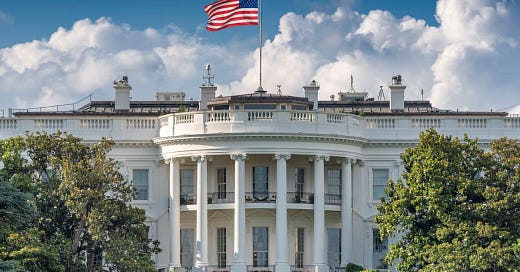At fourteen, I was elected vice president of the ninth grade when hardly anyone knew me. My friend, a shoo-in for president, suggested running against a well-known but unpopular candidate. My classmates voted for me only in rejecting someone else.
About four months into the school year, a hostile group led by my previous opponent attempted to impeach me. My crime: Missing two meetings because I was playing basketball games. The teacher who was our advisor arrived just before the decisive vote, and outraged, ended the inquisition. (He also happened to be my basketball coach.)
The animosity and irrationality displayed opened my eyes to the effect of personalities on student government. I also recognized that decisions were incentivized by individual preferences oriented to popularity; these schemes were relentless.
This early experience exposed me to the histrionics shaping government. It ended my political career, although I remain fascinated by the human traits that determine every aspect of politics and electioneering.
Presidential campaigns driven by theatrics determine palpable outcomes, including economic calamity, physical distress, and horrific wars. Although these important issues are often topics of debate, a cult of personality surrounding a candidate is the central element that gets them elected.
Campaigns promote their designated candidate as having the ability to accomplish good and noble deeds. While lionizing their contestant with an aura of infallibility, each political camp seeks to highlight the defects of the opposition, emphasizing personal flaws, whether it be confusion, aggression, or an unbalanced psyche.
To the voter, Presidential elections appear as a rivalry between competing personalities. Common ground is elusive; it is a choice between two extremes.
Meanwhile, financial and political players hedge their bets. The forces that support candidates and control the corporate interests and military behavior of the United States plan to remain in power no matter who is elected. After beguiling the public, they assume that they will subjugate the President.
Although a challenge, the voter can choose a candidate who will not bend to influences and pressures from unelected manipulative individuals.
This predicament gives rise to a single question: What is the most important characteristic of a candidate for President?
The answer is unequivocal: A leader, who in the face of undue persuasion and hostile adversity, will do everything possible to prevent a catastrophic global war.
WOW — our annual fundraising drive has raised $7 so far!
If you are a reader of Report From Planet Earth, please consider giving what you can or a paid subscription — your contribution is greatly appreciated.





Seen from far by an ”amateur” 🫤...
Sometimes you ”must” (?) choose between ”two evils”. Don’t think Trump is a ”savior”, but seems to me he would be less damaging than Harris...
I cross my fingers for all American people.
This was a nice analysis of why people vote for one candidate over another. This issues are not always the most important factor...